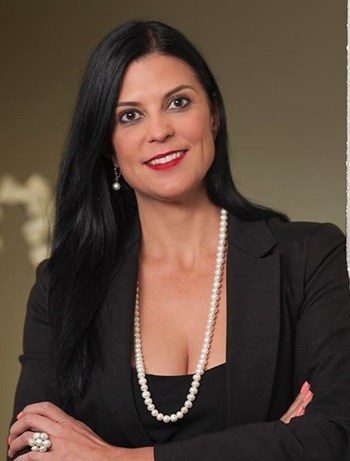
Top stories






More news

Marketing & Media
Ads are coming to AI. Does that really have to be such a bad thing?
















Disruption has meant that chaos is at the order of the day and the result is a confused consumer who is lost and looking for guidance, says Sarina de Beer, managing director of Ask Afrika.
She was presenting the findings of the Ask Afrika Icon Brands research at the event recently at The Venue in Melrose Arch, Johannesburg. In its ninth year, Ask Afrika Icon Brands recognises brands South Africans buy and love. The research surveyed 8,000 brands across 19 product categories. However, only 40 brands were found to be icon brands.
This, says De Beer, has everything to do with disruption.
There are three types of disruption: political, technological and business.
“Politically governments are failing consumers, who are confused and want to know where are we going? Technology disruption creates a fear of being disconnected and Fomo, while business disruption indicates a polarisation of purpose and values.”
The speed of the technology disruption is very fast, she adds. “Already consumers are bored with apps. Technology also misleads us, for example, Brexit and Trump.” Business disruption includes businesses going wrong (Steinhoff) or doing wrong (KPMG).
When disrupting brands also tend to go for the sexy and not for what is real. “While this can be a good association for the brand, consider what is real and its impact as seen in P&G's Thank You Mom? But find out the hidden truth as this Greenpeace ad shows:
She recommends educating consumers about what your brand is doing, what it stands for and the direction it is moving in. “Not everyone (or all brands) can be disrupters either. In fact, be careful when you take this route as it attracts people who go after the excitement.”
In line with this, there has been a decrease in loyalty. “This is also partly because of the changed behaviour of humans. Cereal consumption is down and one of the reasons for this is because it requires a dish and milk and you cannot take it in your car. But we are not meant to be feeding our children in the car, and if we cannot be loyal to our own children and family, how can we expect to be loyal to brands and governments,” she explains.
Ask Afrika forecasts that overall loyalty will stabilise around 35% with a decrease of 2% projected for a singular brand.
The decrease in loyalty has also led to an increase in the number of brands consumers are buying de Beer says. “No longer loyal to one brand only (e.g. of milk), consumers will buy two or more brands (of milk). Very few brands out there have a high number of consumers only buying that brand.”
This makes the job of a brand manager more difficult than ever as people are not loyal anymore and not particular about buying only one brand.
“We want loyal customers, but they do not exist anymore. However non-loyalists, while in line with disruption and more exciting, are not loyal. Do not fool yourself into thinking that they will be,” she adds.
“Our advice: Don’t’ raise your voice. Improve your argument,” De Beer concludes.
